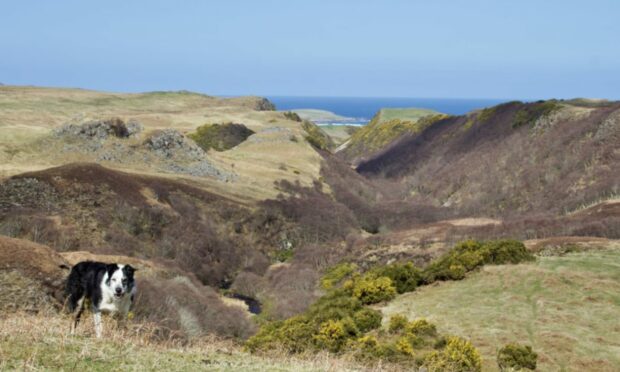It’s heartbreaking to watch the hellish events unfolding across Ukraine and Eastern Europe. Scenes akin to the Second World War rather than 2022.
From Twitter there’s reports of Ukraine arable farmers, in the breadbasket of Europe, being unable to sow their crops.
Surrounded by Russian military, unable to move for fear of attack.
At home the rapidly rising cost of living, possible fuel shortages and food security are in the headlines.
Perhaps now, with food security front and centre, we can actually make real progress on a balanced future agriculture and environmental policy, rather than flowery conversations on unachievable utopias.
NatureScot
Time to deliver as we’ve certainly spent plenty of time talking.
I’m sick to the back teeth of the hypocrisy of NatureScot, the Government body who are meant to be advising land managers on delivering better environmental outcomes and addressing biodiversity loss.
Over two-thirds of Armadale Farm land has environmental designations covering four SSSI’s (Sites of Special Scientific Interest), which rightly restrict and dictate how we manage the land.
This includes Armadale Gorge SSSI, currently in unfavourable condition due to grazing pressures.
Deer
Antler damage from red deer can be seen on the trees. Despite our own heavy deer culling policy, we cannot control our neighbours’ deer populations, which freely access the wooded gorge for shelter and grazing.
Our near neighbours to this site being the Scottish ministers and foreign-based land investors who are reluctant to maintain boundary fences.
Over the years we’ve had two visits from independent experts, hired by NatureScot, to draw up proposals to manage the site. We followed their fencing plan and adjusted with advice from our local NatureScot office.
It only included half the SSSI, despite me asking to extend it to cover the upper part of Armadale Gorge, they turned this down.
A plan was submitted last June, after much consultation with NatureScot, who declared it a very “practical and useful” application. The proposal included a deer fence to exclude all stock, other than the introduction of four native breed cattle to eat back vegetation when needed.
It was all very positive until November when I was asked to withdraw the application. Various reasons were given, always on the phone with great reluctance to put anything in writing.
I challenged their findings through my solicitor on January 17. An investigation was launched and we were informed a decision would be made in 10 working days.
We responded to all their questions, breaking down the amounts, even to the cost of the fence staples that would be required. The 10 working days investigation overran and a rejection of the application hit my inbox on March 2.
None of it made any sense.
Ironically one reason for the rejection was that not all the SSSI was included – the point that I highlighted last summer.
Jilted
NatureScot encouraged me to put in an AECS (Agri-Environment Climate Scheme) application. I feel like a bride that’s been jilted at the alter and I’m not taking it well.
Over the years I’ve made various unsuccessful environmental applications which have cost a lot money and time. The only one to date which has been successful was for land outside our SSSIs.
NatureScot need to stop alienating people on the ground and come from behind their computer screens. Nobody involved with our application visited the site, despite being invited on numerous occasions. The labour costs used in their review were the same as those from the 2015 edition of the Farm Managers Handbook
It’s an uneven playing field when you see freedom of information requests showing NatureScot waving through applications for deer fencing in Assynt, costing £18/meter, a much higher sum than in our application.
All very insignificant compared to the horrors faced by so many Ukrainians.
However, it highlights the significant challenges and bureaucracy faced by land mangers in their dealings with NatureScot.
Meanwhile the clock is ticking ever louder on biodiversity loss and the climate emergency crisis.
Joyce Campbell farms at Armadale on the far north coast.

